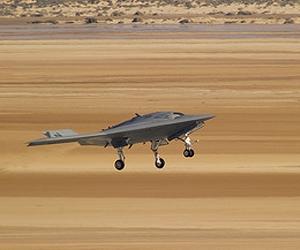 disclaimer: image is for illustration purposes only |
The $750,000 Air Force contract went to ADA Technologies, Inc., which will use the money for further research on developing the innovative nanomaterial-enabled power system for use in small to micro unmanned aircraft systems.
Varieties of UAS are seen as military craft of the future as they are less controversial than craft requiring human crews. At the same time, lithium-ion batteries are generally regarded as a green technology as they can be recharged virtually indefinitely.
Lithium ions in a lithium-ion battery move from the negative electrode to the positive electrode during discharge and back when charging. Unlike pure lithium batteries, which aren't chargeable and add to global litter, lithium-ion electrochemical cells use an intercalated lithium compound as the electrode material instead of metallic lithium.
Lithium-ion batteries are becoming more common in consumer electronics. But they need to be denser with a slower release of power to be useful for military vehicles, particularly unmanned craft. Military experts say the batteries also need to be cheaper to run when scaled up for military uses rather than home electronics.
ADA said it will create a high-performance, cost-effective and easy-to-manufacture lithium-ion battery that meets the power generation and storage requirements of military UAS. It said the next phase of research will involve collaboration with SouthWest NanoTechnologies, which has headquarters in Norman, Okla., and an unnamed major lithium-ion battery manufacturer. ADA has headquarters in Littleton, Colo.
Military UAS have the potential for use in a variety of indoor and outdoor missions and, therefore, must be highly mobile and portable. Many of the possible uses for UAS require significant endurance.
Current state-of-the-art lithium-ion batteries aren't capable of providing sufficient energy while remaining within the military's size constraints. As a result, significant advancements in lithium-ion battery energy and power density are required to enable UAS to execute their intended missions.
ADA says that during the first phase of its research, it made significant progress in the development of advanced nanocomposite electrodes for lithium-ion batteries that possess substantially greater energy and power density, life cycle and safety as compared to current state-of-the-art lithium-ion batteries.
The new phase of research will focus on establishing electrode synthesis protocols and relevant-scale electrode processes. This program will culminate in the design, production and demonstration of a full-scale prototype lithium-ion battery for integration into a military UAS.
Research into lithium iron as a high-capacity power source has fed into a rising global demand for lithium. Several Latin American countries, led by Chile, have welcomed investment to develop their lithium reserves.
Prices for lithium have risen amid intense competition among auto manufacturers to develop consumer vehicles of choice using lithium-ion batteries.
It may be a while before cars running efficiently on lithium-ion batteries hit the road but the lighter unmanned aircraft may be the decisive next step in the development of the metal's full potential as a major source of power for environmentally friendly transport.


Δεν υπάρχουν σχόλια:
Δημοσίευση σχολίου